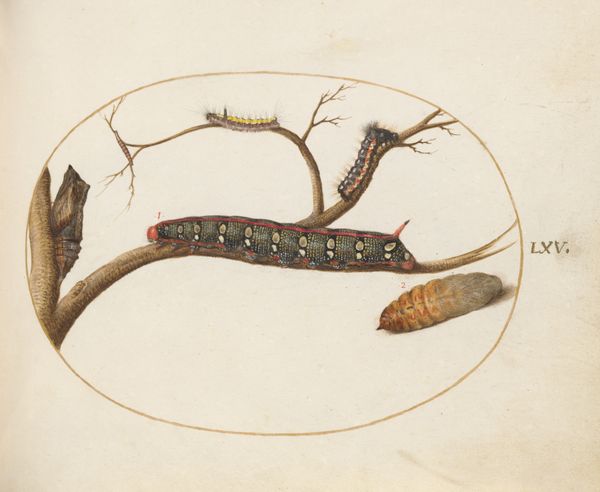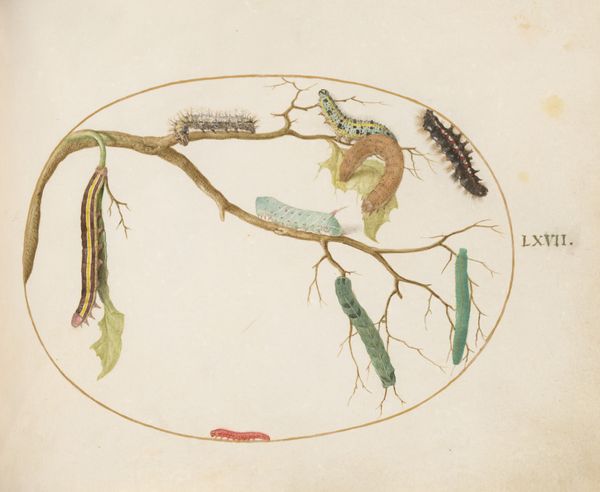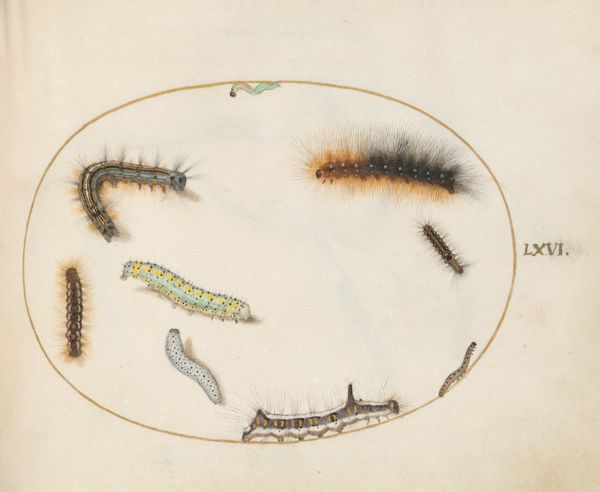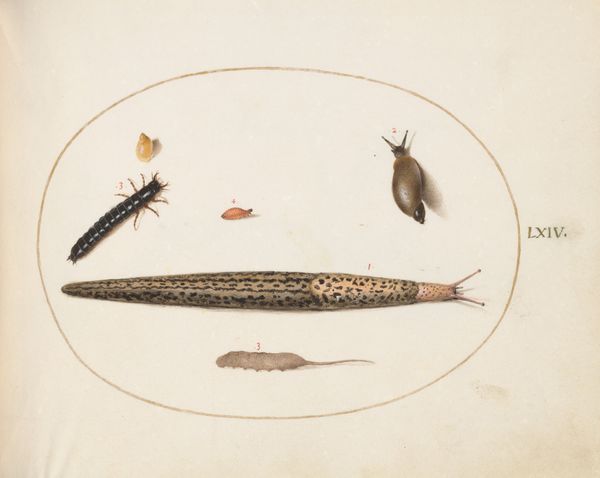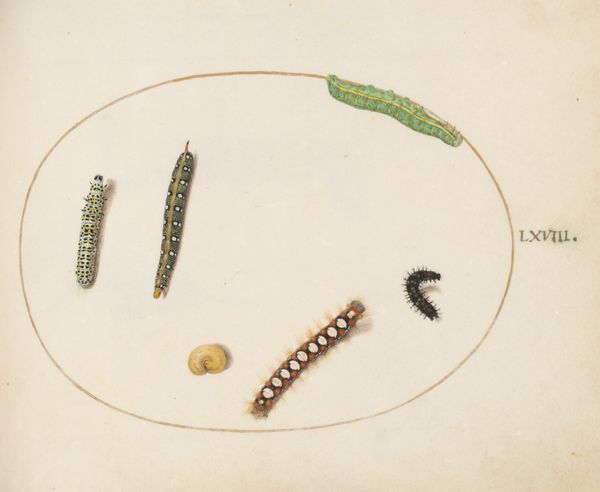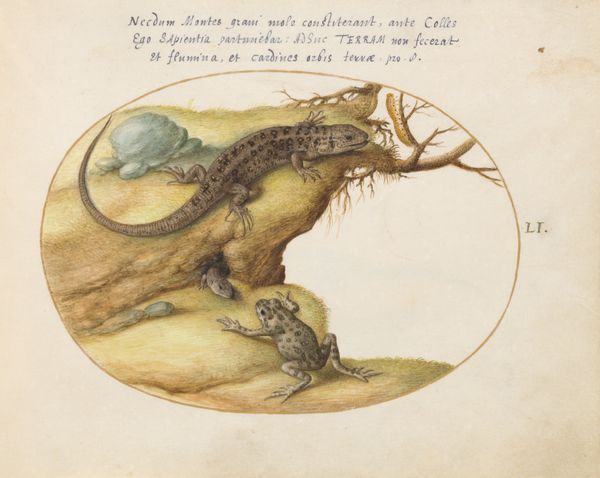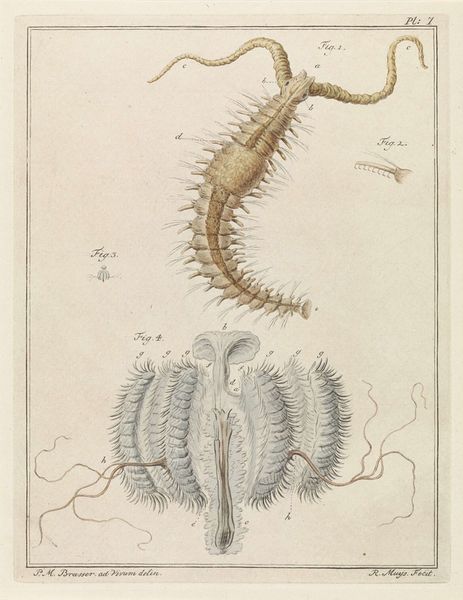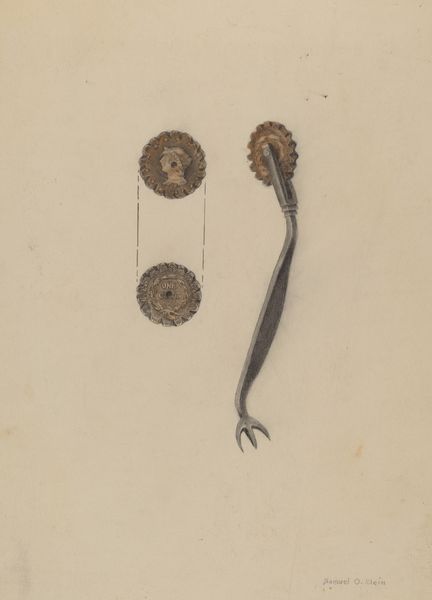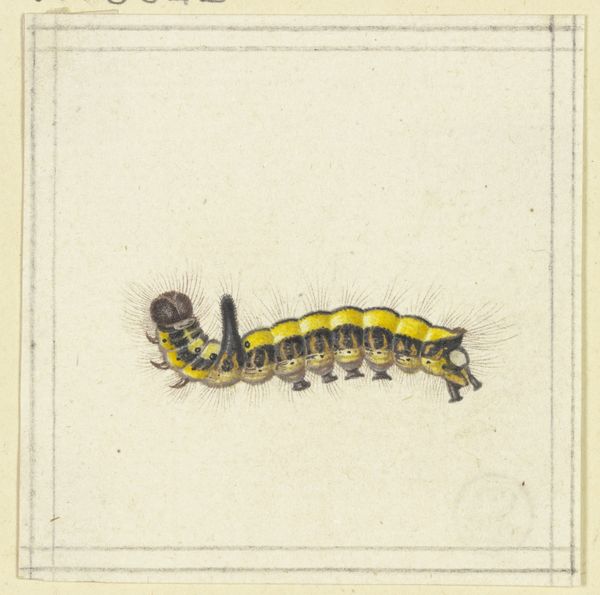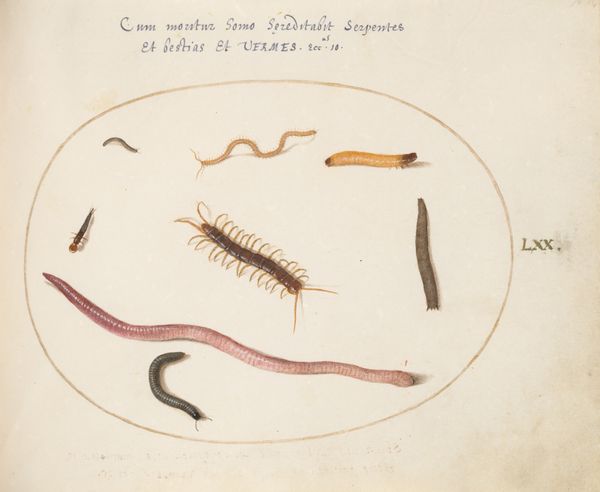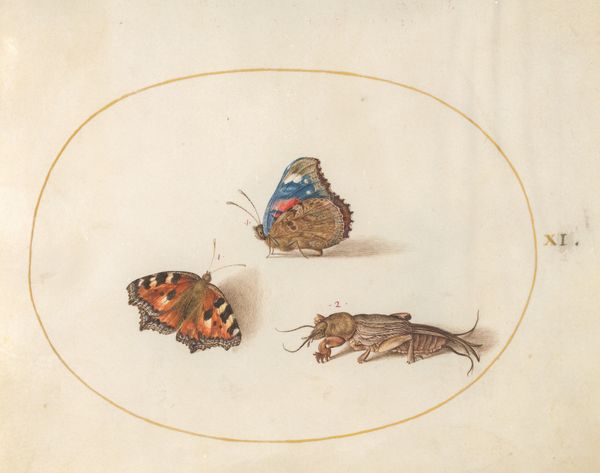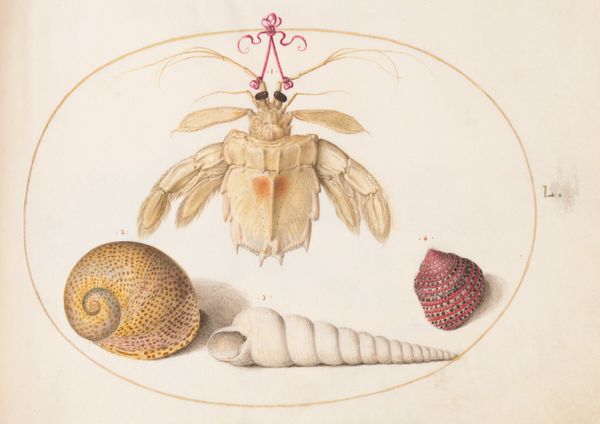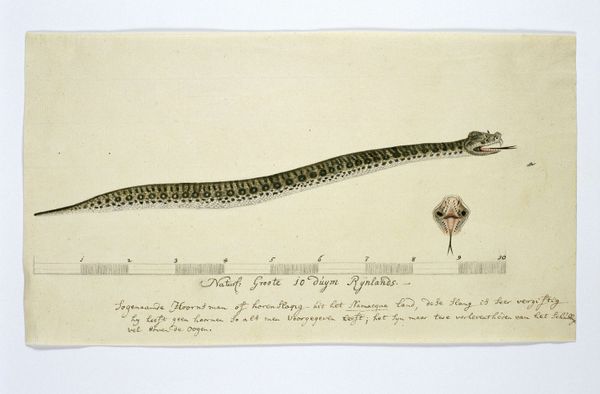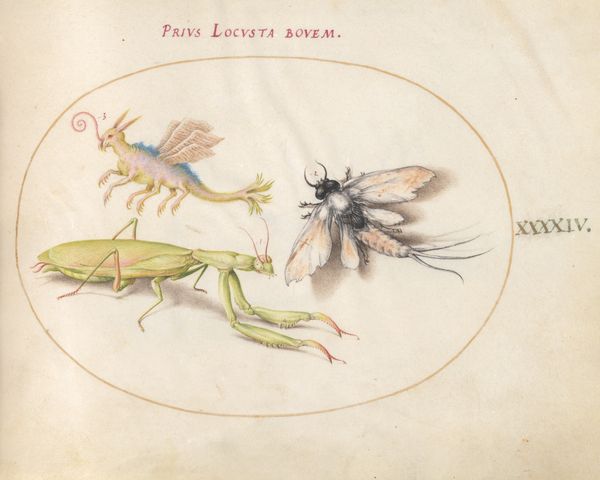
Plate 69: Emperor Moth Caterpillar with a Second Caterpillar on a Branch c. 1575 - 1580
0:00
0:00
drawing, coloured-pencil, watercolor
#
drawing
#
coloured-pencil
#
water colours
#
watercolor
#
coloured pencil
Dimensions: page size (approximate): 14.3 x 18.4 cm (5 5/8 x 7 1/4 in.)
Copyright: National Gallery of Art: CC0 1.0
Joris Hoefnagel painted these two caterpillars on vellum, their forms encircled as if specimens pinned for study. Consider the caterpillar, a humble creature, yet it carries the weight of metamorphosis. In Christian iconography, the butterfly emerging from the chrysalis is an emblem of resurrection, of the soul's ascent from earthly constraints. Here, however, we see the caterpillar, the stage of earthly existence. This image resonates with the ancient motif of the ouroboros, the snake eating its own tail. Like the serpent, the caterpillar embodies cyclical transformation and the eternal return. This natural cycle can also evoke a feeling of melancholy, a bittersweet meditation on life's fleeting nature, an awareness of our own mortality. Just as the seasons turn, so too does the caterpillar transform. Thus, in Hoefnagel's seemingly simple illustration, we find layers of meaning, echoing through the corridors of time. The humble caterpillar, a symbol of change, becomes a mirror reflecting our own transient existence.
Comments
No comments
Be the first to comment and join the conversation on the ultimate creative platform.
